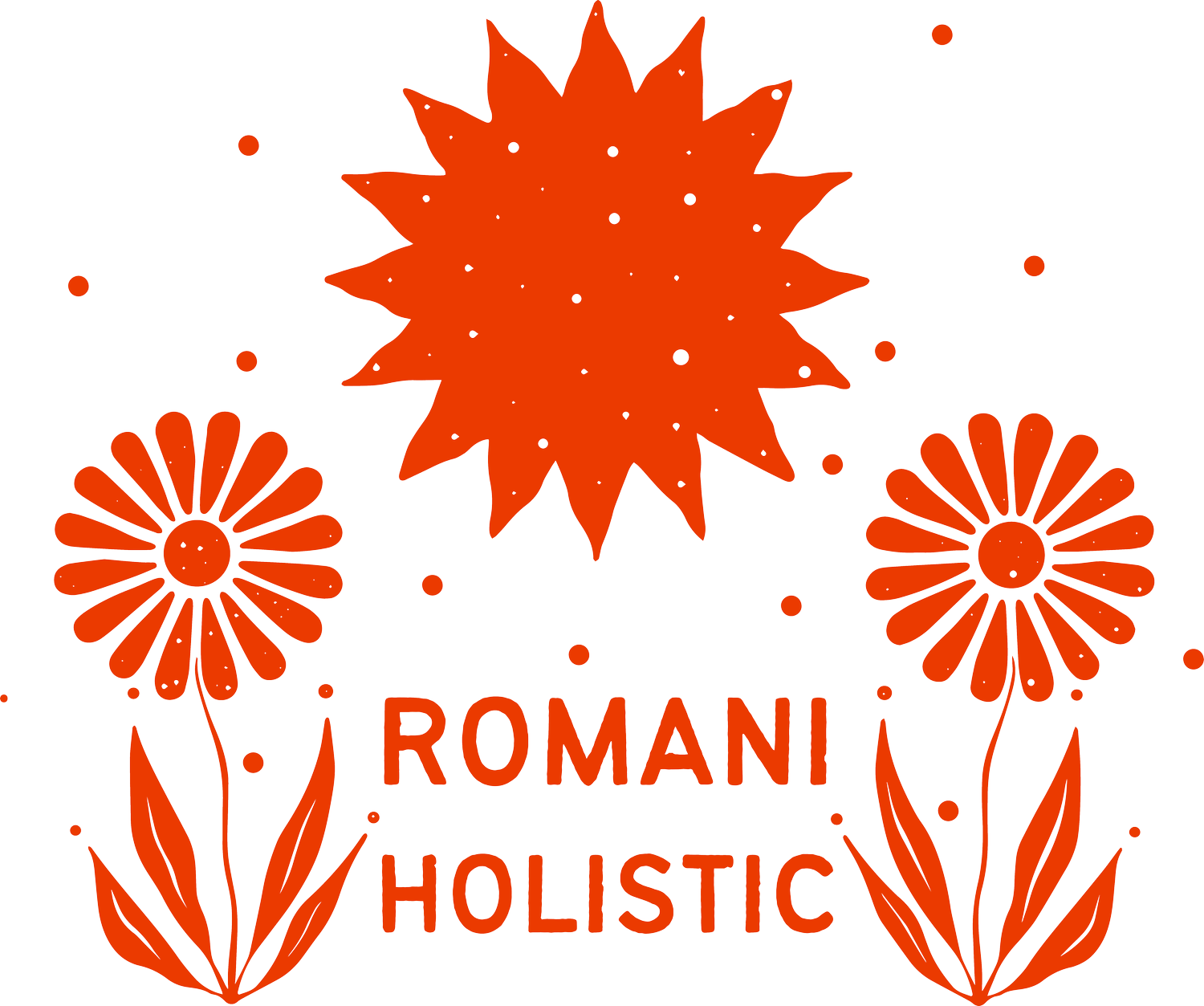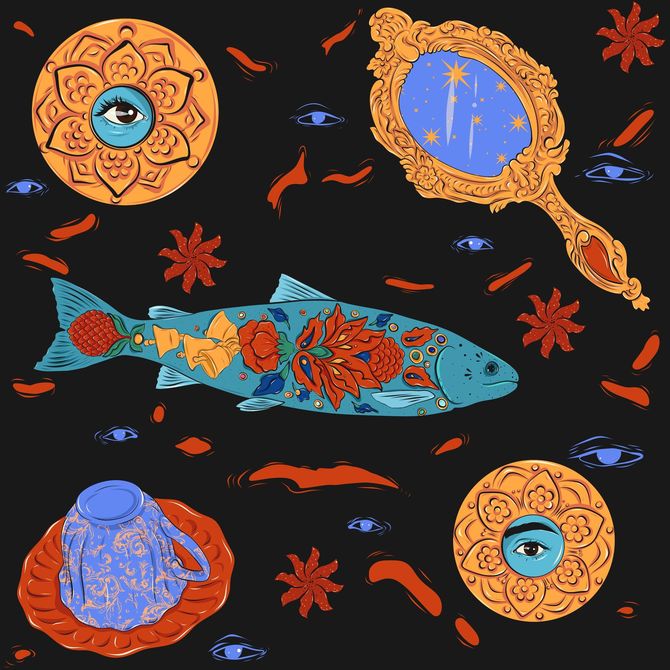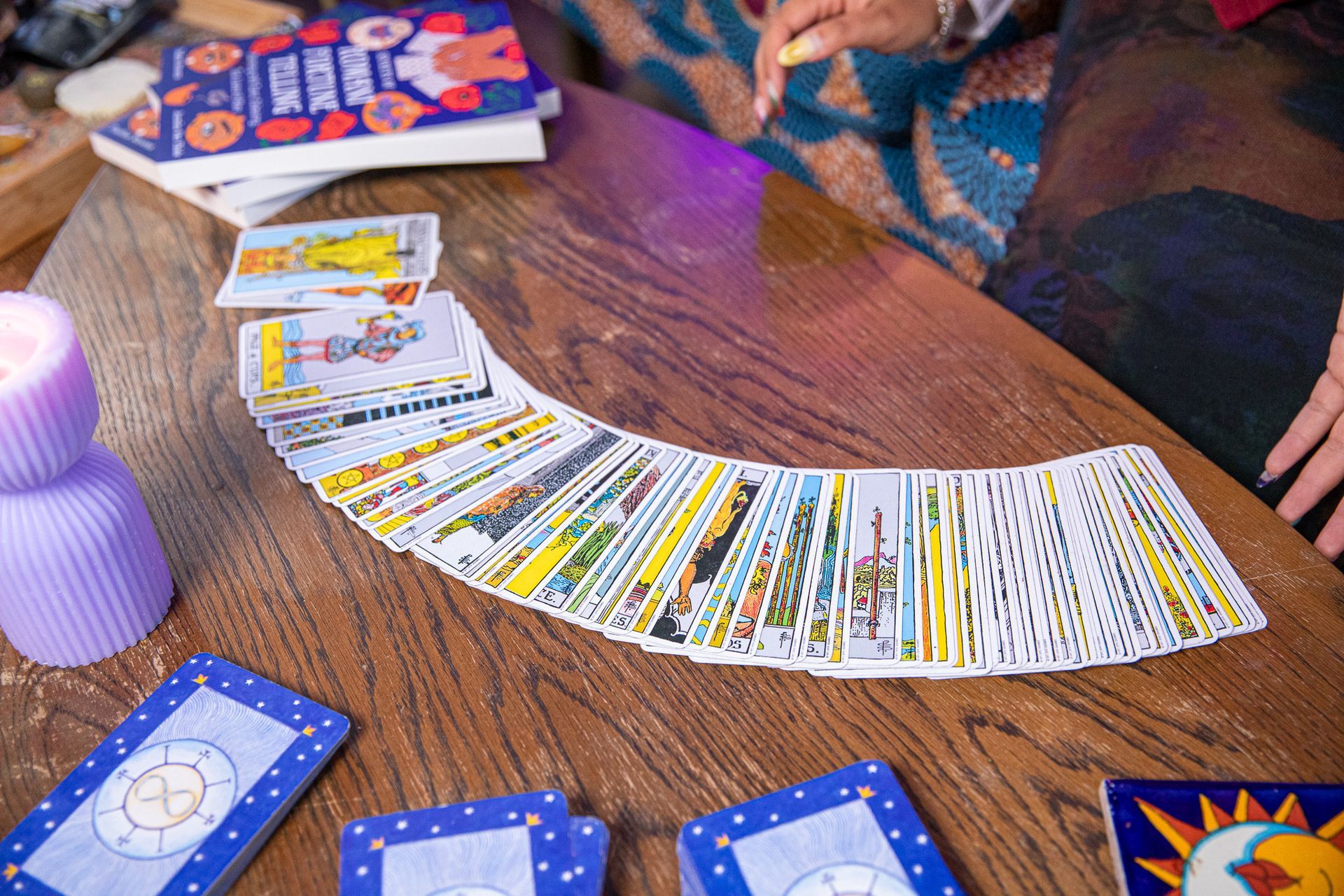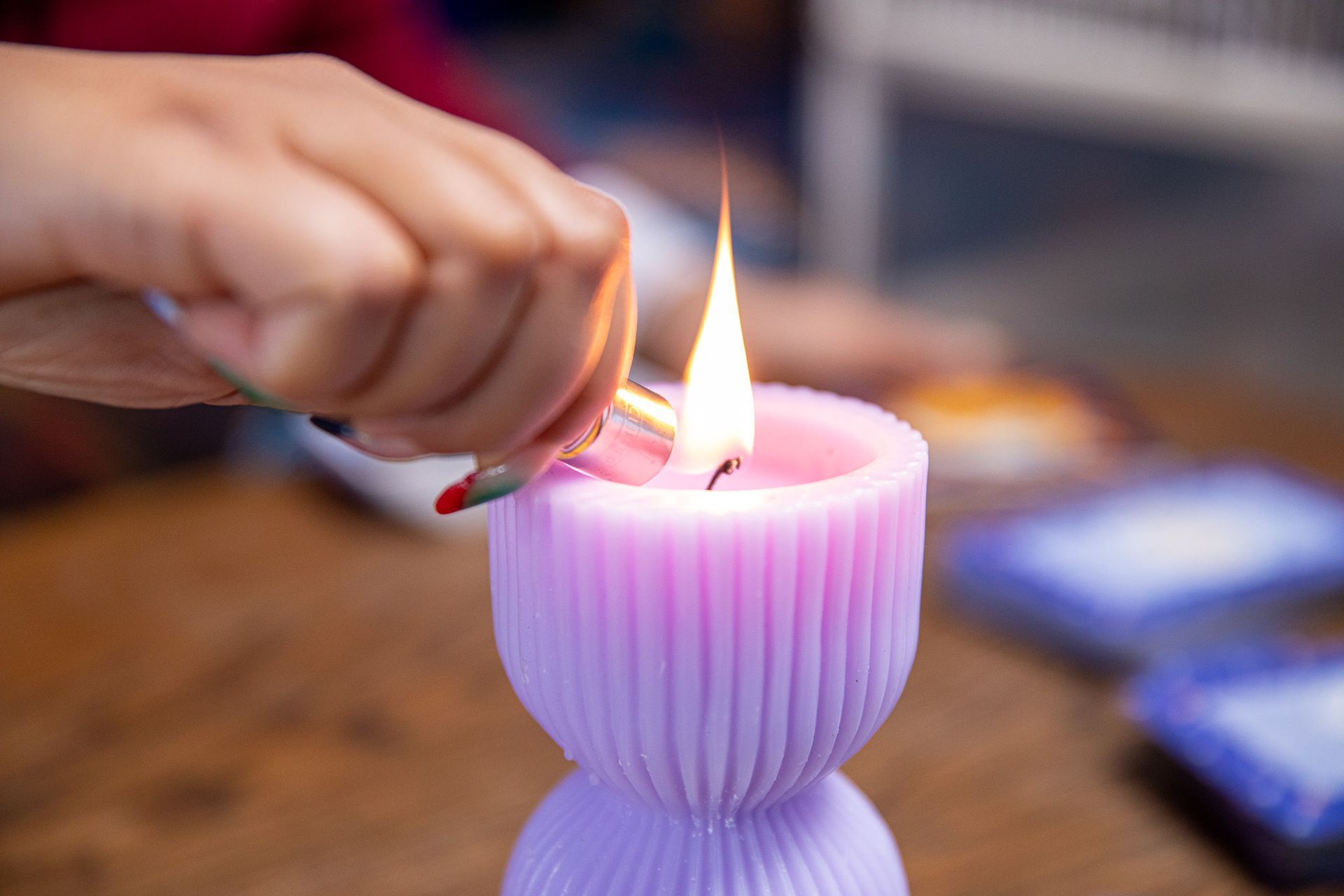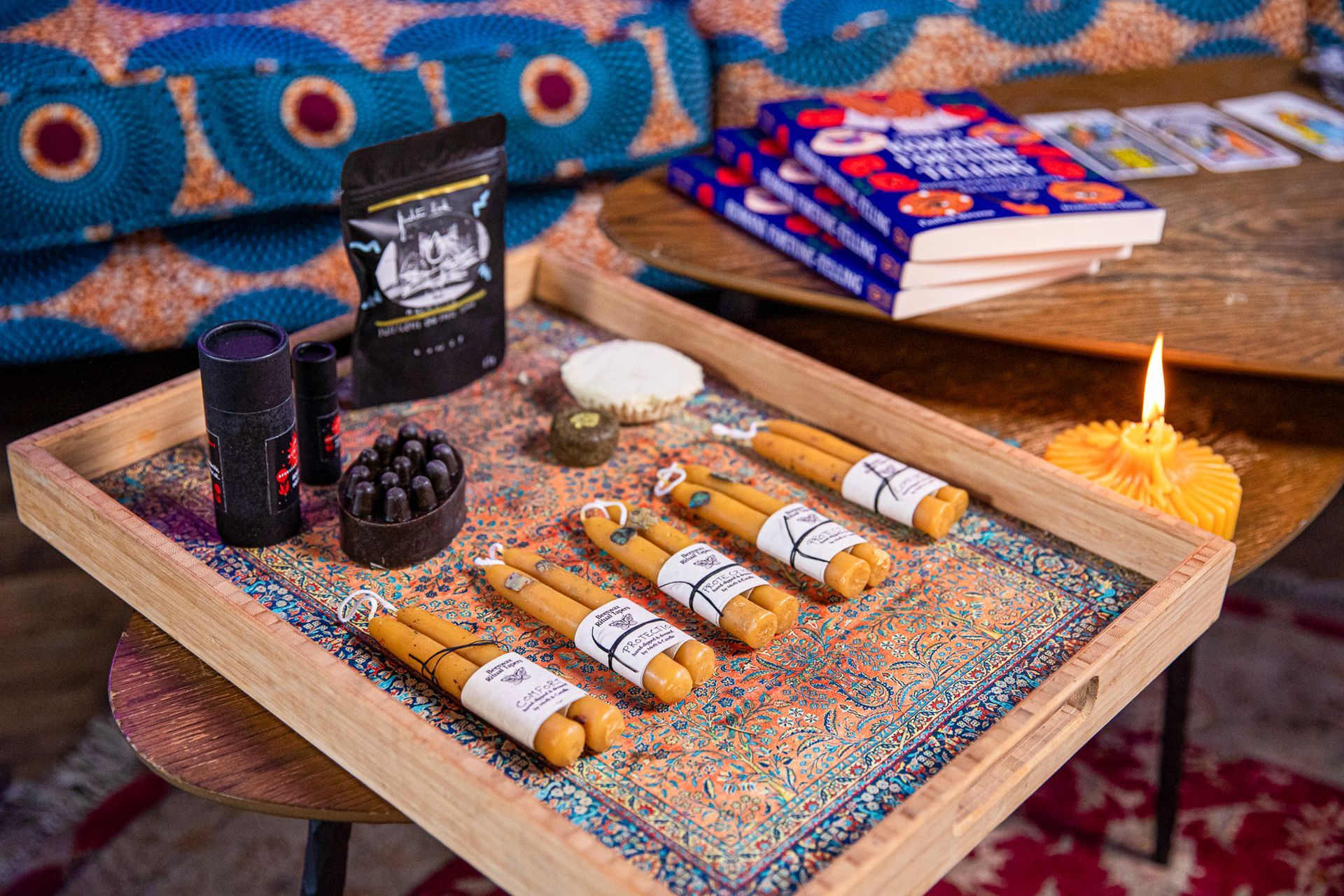About Romani Holistic
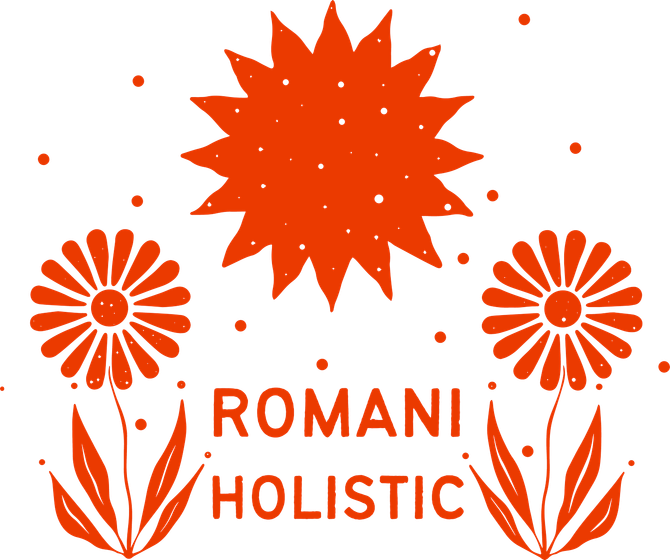
Tradition. Modern Ritual. Whole Person Healing
Romani Holistic is a sacred space for those seeking realignment, clarity, and transformation, spiritually, emotionally, and physically. Founded by Paulina Stevens, a Romani American spiritual practitioner and holistic wellness coach, this practice blends ancestral divination, energy work, and clean self-care into a modern path for healing and empowerment.
Everything we offer, from tarot readings and custom rituals to handcrafted skincare, is rooted in the belief that
wellness is not one dimensional. True healing happens when we tend to the
inner self, the energetic body, and the physical world around us.
A Lineage of Divination & Healing
Romani Holistic is built on generations of inherited wisdom. Raised in a family that ran spiritual shops across California, Paulina was immersed in z fortune-telling from a young age, learning tarot, Turkish coffee reading, palmistry, and herbal remedies as a way of life, not a trend.
But Paulina’s work has always been about evolution, not just preserving Romani traditions, but expanding them into accessible, ethical, and transformative tools for modern seekers.
Bridging Old World Wisdom with Modern Wellness
Paulina's path led her beyond traditional divination into the world of holistic health coaching, energy healing, and spiritual mentorship. Romani Holistic was born from that bridge, offering readings, rituals, coaching, and non-toxic self-care products that support full-spectrum wellness.
From helping clients release emotional blocks to guiding entrepreneurs through financial transformation, the work is tailored, grounded, and spiritually attuned.
Ethical, Empowering, Culturally Rooted
In a spiritual industry often saturated with appropriation and aesthetic over substance, Romani Holistic stands apart. Every service, spell, and product is offered with deep cultural integrity, never commercialized, never diluted.
Our commitment is to ancestral reclamation, not commodification. This is sacred work, and we treat it that way.
Clean Ritual for the Body, Too
Spiritual health doesn’t stop at the soul, it lives in the body. That’s why we also offer a full line of plastic-free, small-batch self-care products, handcrafted with whole, non-toxic ingredients.
Available as one-time purchases or curated subscription boxes, these products help turn everyday care into intentional ritual.
No plastic. No synthetics. No BS.
Just nourishing, sustainable body care that aligns with the rest of your practice.
Subscription Services to Support Ongoing Wellness
Your rituals should evolve with you. Our monthly and quarterly subscriptions are designed to keep your spiritual and physical self-care flowing. Whether it’s a monthly refresh of your favorite soap and balm, or a seasonal box filled with curated ritual tools and clean beauty, we make it easy to stay aligned without overthinking it.
Our Founder
Paulina Stevens
Holistic Healing Practitioner | Intuitive Reader
Paulina blends intuitive spiritual guidance with practical wellness tools to support growth in all areas of life, including relationships, family dynamics, career alignment, life purpose, and emotional well-being. Her approach is grounded in the belief that true wellness unfolds on three levels: internal (mindset and energy), external (habits and environment), and spiritual/emotional (intuition and soul alignment).
Drawing from generations of Romani divination traditions and modern holistic coaching, Paulina offers a path to clarity, empowerment, and deep transformation. Whether through tarot, rituals, or coaching, her work helps clients step into alignment and reclaim their power.
Seen, Heard & Celebrated
Paulina’s work has been featured in major platforms for her unique, integrity-driven approach to spiritual work. She is the co-author of Secrets of Romani Fortune-Telling (Weiser Red Wheel Publishing) and co-host of the Romanistan Podcast, where she explores Romani identity, magic, and folklore.
She was featured in the LA Times’ “Foretold” podcast, and invited to speak at Columbia University on cultural tradition and authenticity in modern spirituality.
This Is More Than a Business, It’s a Movement
Romani Holistic isn’t just about what you buy or book. It’s about coming home to yourself.
Whether you're here for a tarot reading that changes your perspective, a personalized ritual to manifest love or protection, or a subscription box that keeps your self-care intentional you're joining a community that values truth over trend, and healing over hype.
We’re here to help you align, manifest, and thrive, ethically, spiritually, and holistically.
